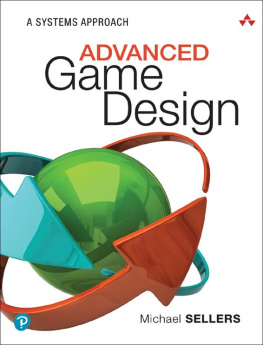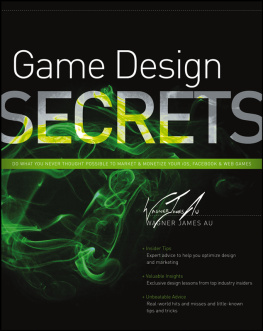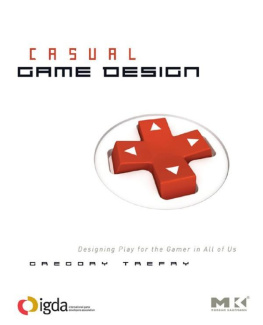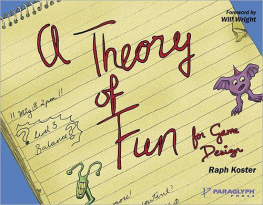A Theory of Fun for Game Design
Raph Koster
Copyright 2010
Limits of Liability and Disclaimer of Warranty
The author and publisher of this book have used their best efforts in preparing the book and the programs contained in it. These efforts include the development, research, and testing of the theories and programs to determine their effectiveness. The author and publisher make no warranty of any kind, expressed or implied, with regard to these programs or the documentation contained in this book.
Trademarks
Trademarked names appear throughout this book. Rather than list the names and entities that own the trademarks or insert a trademark symbol with each mention of the trademarked name, the publisher states that it is using the names for editorial purposes only and to the benefit of the trademark owner, with no intention of infringing upon that trademark.
The author and publisher shall not be liable in the event of incidental or consequential damages in connection with, or arising out of, the furnishing, performance, or use of the programs, associated instructions, and/or claims of productivity gains.
Dedication
This book is dedicated to my kids, without whom I never would have written it, and to Kristen, because I always promised my first book would be for her. Without her, thered be no book.
Acknowledgements
Special thanks to all those who have helped me clarify the thoughts that went into this book over the last few years, through their writing and direct conversation and by challenging my assumptions. In no particular order:
Cory Ondrejka for passionately dreaming the dream; Ben Cousins for coining ludeme and pursuing empirical approaches; David Kennerly for loving the ludemes; Gordon Walton and Rich Vogel for mentoring, mentoring, mentoringand letting go; J. C. Lawrence for creating the forum; Jesper Juul for questioning the premise; Jessica Mulligan for opening the art question; John Buehler for the emotion questions; John Donham for indulging and interest; Lee Sheldon for insisting on story; Nicole Lazzaro for introducing me to research on emotion; Noah Falstein for treading down a similar pathkeep an eye out for his book; Richard Bartle for the playspace, and for advocating authorial intent; Richard Garriott for injecting ethics; Rod Humble for listening to very long rambles; Sasha Hart for the human condition questions; Timothy Burke and many other players for forcing me to consider the question; Will Wright for insight into formal game systems.
Extra special thanks to those who helped make the book in this form come together: Kurt Squire for introducing Ben to the original presentation, Ben Sawyer for editing, Dave Taylor and Patricia Pizer for fantastic volunteer editing jobs, Keith Weiskamp for publishing and line-by-line commentary, Chris Nakashima-Brown for legal help, Kim Eoff for laying out the book, and Judy Flynn for copyediting.
Above all, to Kristen, who helped scan the images, gave me the space in which to work, and read the drafts as they emerged. Without the time granted to me by her willingness to watch the kids, cook the food, and keep me working, this would never have come to be.
Finally, thank you to all those who in my life have allowed me to pursue this crazy career. And to my family, for fostering the sense of fun from an early age and buying all the darn games and computers for me.
The title of this book almost feels wrong to me. As a game designer, seeing the words Theory and Fun in such close proximity instinctively makes me a bit uncomfortable. Theories are dry and academic things, found in thick books at the back of the library, whereas fun is light, energetic, playful andwellfun.
For the first few decades of interactive game design we were able to blithely ignore many of the larger meta-questions surrounding our craft while we slowly, painfully learned to walk. Now for the first time we are starting to see serious interest in what we do from the academic side. This is forcing those of us in the games industry to stop and consider,
What is this new medium that were working in?
The academic interest seems twofold: First is the recognition that video games probably represent an emerging new medium, a new design field, and possibly a new art form. All of these are worthy of study. Second, there are an increasing number of motivated students that grew up playing these games and now find themselves inspired to work in the field one day. They want to find schools that will help them understand what games are and how to make them.
One slight problem: there are very few teachers that understand games well enough to teach them, no matter how motivated their students happen to be. Actually its worse than that because there are very few people working in the games industry today (and Raph Koster is definitely one of them) who understand games well enough to even communicate what they know and how they know it.


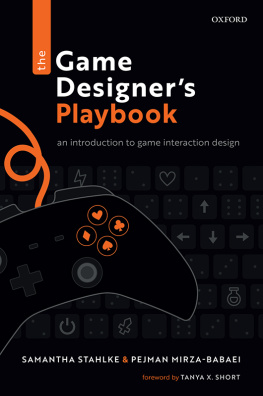
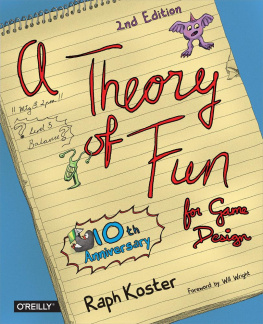
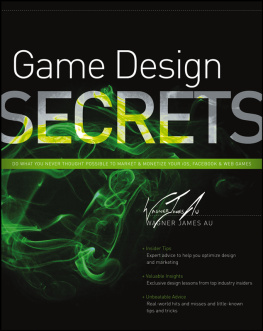
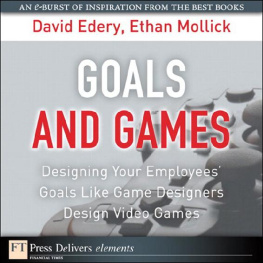
![Wagner James Au [Wagner James Au] - Game Design Secrets](/uploads/posts/book/119431/thumbs/wagner-james-au-wagner-james-au-game-design.jpg)
![Ethan Ham [Ethan Ham] - Tabletop Game Design for Video Game Designers](/uploads/posts/book/119417/thumbs/ethan-ham-ethan-ham-tabletop-game-design-for.jpg)
